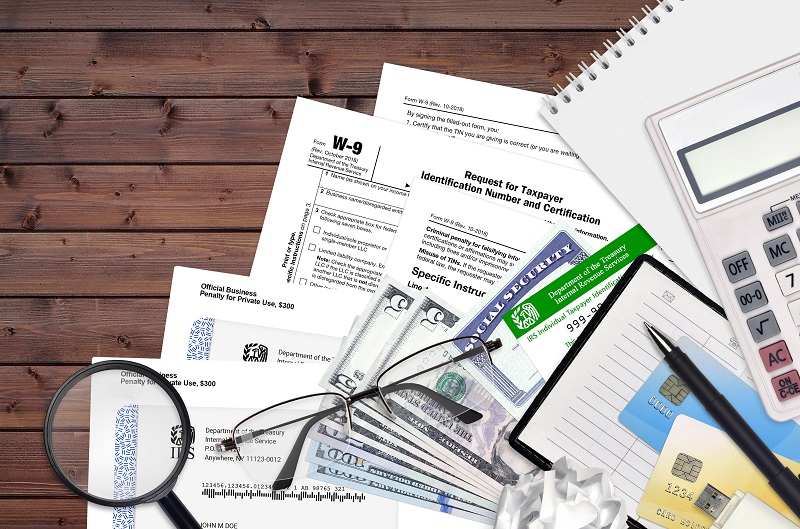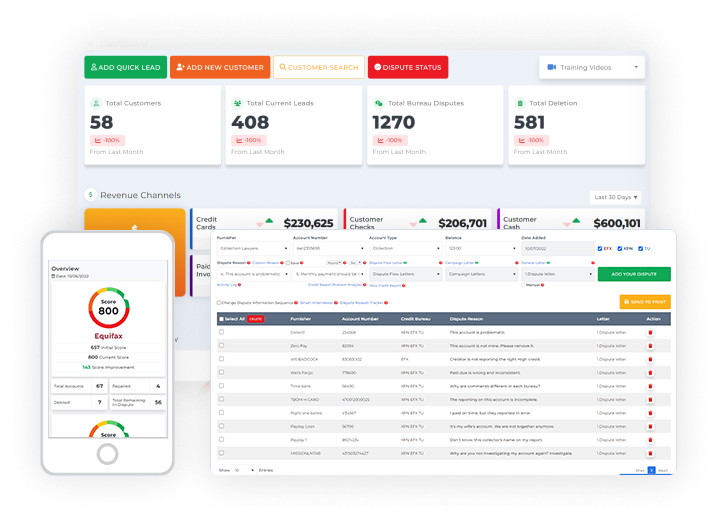Starting a credit repair business in Alabama can be a rewarding venture for individuals with a passion for helping others improve their financial situation. In today’s economy, having good credit is more important than ever, as it can impact everything from getting approved for a loan to securing a job.
In this article, we’ll explore the key steps and considerations involved in starting a credit repair business in Alabama, from business formation and legal requirements to marketing strategies and business models.
Business Formation

Choose an appropriate business structure (e.g., sole proprietorship, partnership, LLC, corporation) and register your business with the Alabama Secretary of State. You can find more information on business structures and registration at the Alabama Secretary of State’s website.
Sole Proprietorship:
This is the simplest business structure, where an individual operates the business as an extension of themselves. The owner is personally responsible for all business debts and liabilities. There’s no formal registration required for a sole proprietorship in Alabama, but you may need to register a trading name or obtain local permits and licenses.
General Partnership:
A general partnership is formed when two or more individuals agree to operate a business together. Like a sole proprietorship, general partners are personally liable for the business’s debts and liabilities. Partnerships must file a statement with the Alabama Secretary of State, and may also need local permits or licenses.
Limited Partnership (LP):
An LP has both general and limited partners. General partners are responsible for managing the business and are personally liable for its debts, while limited partners have limited liability and typically only contribute capital. LPs must be registered with the Alabama Secretary of State.
Limited Liability Company (LLC):
An LLC is a popular choice for small business owners because it combines the liability protection of a corporation with the tax flexibility of a partnership. LLC owners, called members, are generally not personally liable for the company’s debts. To form an LLC in Alabama, you must file a Certificate of Formation with the Alabama Secretary of State and create an operating agreement.
Corporation:
A corporation is a separate legal entity that provides its owners, called shareholders, with limited liability. Corporations are more complex to set up and maintain than other business structures, but they can offer tax benefits and make it easier to raise capital. To form a corporation in Alabama, you must file a Certificate of Incorporation with the Alabama Secretary of State and adopt bylaws.
S Corporation:
An S Corporation is a special type of corporation that allows for pass-through taxation, meaning the profits and losses of the business are reported on the shareholders’ personal tax returns. To form an S Corporation, you must first form a regular corporation, and then file an election with the Internal Revenue Service (IRS) using Form 2553.
Nonprofit Corporation:
A nonprofit corporation is formed for charitable, educational, or other non-commercial purposes. Nonprofits in Alabama must file a Certificate of Formation with the Alabama Secretary of State and obtain tax-exempt status from the IRS by filing Form 1023 or Form 1023-EZ.
Obtain an EIN

Apply for an Employer Identification Number (EIN) from the Internal Revenue Service (IRS). This is required for tax purposes and may be needed to open a business bank account.
Online:
The easiest and quickest way to obtain an EIN is through the IRS website. Visit the IRS EIN Assistant and complete the online application. Once you submit the application, you’ll receive your EIN immediately.
Mail or Fax:
Download Form SS-4, “Application for Employer Identification Number,” from the IRS website. Complete the form and mail or fax it to the appropriate IRS address or fax number listed on the form’s instructions. If you choose this method, it may take several weeks to receive your EIN.
Telephone:
You can also apply for an EIN by calling the IRS Business and Specialty Tax Line at 1-800-829-4933. The hours of operation are Monday through Friday, 7 a.m. to 7 p.m. local time. The representative will complete Form SS-4 during the call and provide you with the EIN. Note that this option is available for international applicants, as well.
Regardless of the method you choose, obtaining an EIN is free of charge. Once you have your EIN, you can use it to open a business bank account, register for taxes, and complete other business-related tasks that require a federal tax identification number.
Business License

Check with your local city or county government office to determine if you need any additional permits or licenses to operate a credit repair business in your area.
Determine the Requirements:
Business licensing requirements can vary based on your location and the type of business you are operating. Start by contacting your local city or county government offices to determine the specific licenses and permits needed for your business.
State-Level Requirements:
Some businesses may require state-level licenses or permits. For example, certain professional services, such as accountants, engineers, or cosmetologists, need to obtain a professional license from the relevant state board. Visit the Alabama Department of Revenue’s website and the Alabama Department of Commerce’s website to determine if your business requires any state-level licenses or permits.
County and City Requirements:
In addition to state requirements, you may need to obtain county or city business licenses or permits. Contact your local county probate office or city clerk’s office to learn about any specific requirements in your area.
File a Trade Name:
If you plan to operate your business under a name other than your legal name, you will need to register a trade name (also known as a “Doing Business As” or DBA) with the appropriate county probate office.
Obtain a Sales Tax Number:
If your business is selling tangible personal property or providing certain services subject to sales tax, you will need to obtain a sales tax number from the Alabama Department of Revenue. You can register online using the My Alabama Taxes (MAT) system.
Complete the Necessary Forms:
Once you have determined the specific licenses and permits required for your business, complete the necessary forms and submit them to the appropriate city, county, or state agencies, along with any required fees.Once you have determined the specific licenses and permits required for your business, complete the necessary forms and submit them to the appropriate city, county, or state agencies, along with any required fees.
Obtain Additional Permits If Needed:
Depending on your business type, you may also need additional permits, such as health department permits, building permits, or environmental permits. Contact the appropriate local or state agencies to determine if these permits apply to your business.
Maintain Your Licenses and Permits:
Once you have obtained the necessary licenses and permits, make sure to renew them as required and stay compliant with any ongoing reporting or regulatory requirements.
Bond Requirement

Some states require credit repair businesses to obtain a surety bond to protect clients in case of fraud or other unethical practices. As of my knowledge cutoff date in September 2021, Alabama does not have a specific bond requirement for credit repair businesses.
However, this may have changed since then, so it’s important to check with the appropriate state agency or consult with an attorney to ensure compliance.
September 2021, Alabama does not have specific surety bond requirements for credit repair businesses. However, it’s important to note that regulations and requirements can change over time.
To ensure you’re operating within the legal boundaries, it is essential to consult with a legal professional or contact the appropriate state agencies to verify if any bond requirements have been implemented since September 2021.
Moreover, as a credit repair business, you must comply with the Credit Repair Organizations Act (CROA), a federal law that governs the credit repair industry. While the CROA does not mandate a surety bond, it does have specific requirements for how credit repair businesses should operate, including providing written contracts, disclosing certain information to clients, and prohibiting misleading advertising or marketing practices.
Even if there is no specific bond requirement for credit repair businesses in Alabama, obtaining a surety bond voluntarily may be beneficial. A surety bond can help build trust and credibility with your clients, as it provides them with financial protection in case of fraud or unethical practices by your business.
Familiarize Yourself with Relevant Laws
Understand and comply with the Credit Repair Organizations Act (CROA), a federal law that governs the credit repair industry. Additionally, be aware of Alabama’s state consumer protection laws, such as the Alabama Deceptive Trade Practices Act (ADTPA), which can impact your business operations.
Credit Repair Organizations Act (CROA):

This federal law applies to credit repair businesses nationwide, including in Alabama. It sets forth various requirements and restrictions, including providing clients with a written contract, prohibiting upfront fees before services are rendered, and allowing clients to cancel the contract within three business days. Businesses must also avoid misleading or false advertising and follow guidelines set by the Federal Trade Commission (FTC).
Alabama Deceptive Trade Practices Act (ADTPA):
Although not specifically aimed at credit repair businesses, the ADTPA (Code of Alabama §§ 8-19-1 to 8-19-15) is a state law that prohibits businesses from engaging in deceptive or unfair practices that can affect consumers. Credit repair businesses should be aware of this law and ensure they are not making false claims, engaging in fraud, or misrepresenting their services.
Alabama Data Breach Notification Act:
Credit repair businesses handle sensitive consumer information, and the Alabama Data Breach Notification Act (Code of Alabama §§ 8-39-1 to 8-39-10) requires businesses to notify affected individuals in the event of a data breach involving personal information.
Familiarize yourself with the requirements of this law to ensure your business is prepared to handle and report any potential data breaches.
Fair Credit Reporting Act (FCRA):
While this is a federal law, it’s important for credit repair businesses to be familiar with the FCRA, which governs credit reporting and the accuracy of information on consumer credit reports. As a credit repair business, you will be working with credit reporting agencies and disputing inaccurate information on behalf of your clients, so understanding the FCRA is crucial to ensure compliance.
Create a Written Contract

Under the CROA, credit repair businesses must provide clients with a written contract detailing the services to be provided, the cost of those services, the duration of the service, and any guarantees or warranties. Make sure your contract complies with these requirements.
The Parties Involved:
Clearly identify the parties to the contract, including the full legal name of your credit repair business and the client’s name.
Description of Services:
Clearly outline the specific services your credit repair business will provide, such as disputing inaccurate items on the client’s credit report or negotiating with creditors.
Cost of Services:
Provide a detailed breakdown of the fees and charges the client will incur for your services. The CROA prohibits charging upfront fees before services are rendered, so make sure your payment terms are compliant with this requirement.
Date of Contract:
Include the date when the contract is signed by both parties.
Duration of Services:
Clearly state the time frame in which the services will be provided and completed.
Disclosure of Client's Rights:
The CROA requires that credit repair companies inform clients of their rights under the law, including their right to cancel the contract within three business days. Provide a clear and conspicuous statement of these rights in your contract.
Cancellation Policy:
Detail your cancellation policy, ensuring that clients can cancel the contract without penalty or obligation within three business days of signing.
Guarantees and Warranties:
If you offer any guarantees or warranties related to your services, make sure they are clearly stated in the contract. Be cautious about making promises or guarantees that may be considered deceptive or misleading.
Governing Law and Dispute Resolution:
Specify the state law that will govern the contract and any disputes arising from it (in this case, Alabama law). You may also include a dispute resolution clause outlining how any disagreements between the parties will be resolved, such as through mediation or arbitration.
Signatures:
Both you and the client should sign and date the contract, and each party should receive a copy for their records.
Advertising and Marketing Compliance

Ensure that all advertising and marketing materials for your credit repair business are truthful and not misleading. Familiarize yourself with the Federal Trade Commission’s (FTC) guidelines for advertising and marketing to avoid any legal issues.
Credit Repair Organizations Act (CROA):
The CROA sets forth specific guidelines for credit repair businesses to follow when advertising and marketing their services. Some key requirements include:
Prohibition of False Or Misleading Claims:
Do not make false or misleading statements about the potential outcomes or the effectiveness of your services. Avoid guaranteeing specific results or promising to improve credit scores by a certain amount.
Clear Disclosure Of Fees:
Clearly disclose the fees associated with your services in your advertising and marketing materials. Do not charge clients upfront fees before performing any credit repair services, as prohibited by the CROA.
Federal Trade Commission (FTC) Act:
The FTC Act prohibits unfair or deceptive acts or practices in advertising and marketing. Credit repair businesses should adhere to the following guidelines:
Avoid Deceptive Or Unsubstantiated Claims:
Ensure that all claims made in your advertising and marketing materials are accurate and can be substantiated with evidence. Do not make false or misleading promises about the results clients can expect.
Disclose Material Information:
Clearly disclose any material information that clients need to make an informed decision about your services. For example, if you offer a money-back guarantee, include any conditions or limitations associated with the guarantee.
Testimonials and Endorsements:
If you use client testimonials or endorsements in your advertising, ensure they are genuine and accurately represent the typical results clients can expect. Do not use testimonials that are false or misleading.
Online Advertising and Marketing:
If your credit repair business uses online advertising and marketing channels, such as websites, social media, or email marketing, be aware of additional regulations and guidelines that may apply:
CAN-SPAM Act:
If you engage in email marketing, comply with the requirements of the CAN-SPAM Act, which regulates commercial email messages. This includes providing a clear and conspicuous opt-out mechanism for recipients and honoring opt-out requests promptly.
Privacy Policies and Data Protection:
Ensure your website has a clear and comprehensive privacy policy that explains how you collect, use, and protect clients’ personal information. Also, comply with any applicable data protection regulations, such as the Alabama Data Breach Notification Act.
Maintain Proper Record-keeping

Keep detailed records of your client interactions, services provided, and financial transactions for a minimum of two years as per the CROA.
Client Files:
Maintain organized and up-to-date files for each client, including copies of contracts, documentation of services provided, correspondence with credit bureaus and creditors, and records of any fees charged. Ensure that all client information is treated as confidential and stored securely.
Financial Records:
Keep detailed and accurate financial records, including invoices, receipts, bank statements, tax filings, and records of any fees charged to clients. This will help you manage your business finances effectively and prepare for tax filings or financial audits.
Compliance with the Credit Repair Organizations Act (CROA):
The CROA imposes certain record-keeping requirements on credit repair businesses. For example, you must retain copies of client contracts and required disclosures for a minimum of two years after the contract is signed or the disclosure is made.
Compliance with the Fair Credit Reporting Act (FCRA):
As a credit repair business, you will be working with clients’ credit reports and interacting with credit reporting agencies. Make sure to maintain records of any disputes or requests made on behalf of clients, including copies of dispute letters, supporting documentation, and correspondence with credit bureaus.
Data Security and Privacy:
Implement appropriate data security measures to protect your clients’ personal information, such as encryption, secure storage, and controlled access to files. Develop a privacy policy outlining how you collect, use, and protect clients’ information, and ensure your record-keeping practices align with this policy.
Retention Schedule:
Establish a document retention schedule that outlines how long different types of records should be retained, taking into account any legal requirements or industry best practices. Make sure to securely dispose of records when they are no longer needed, in a way that protects clients’ privacy.
Regular Audits and Updates
Conduct periodic audits of your record-keeping practices to ensure they are up-to-date, accurate, and compliant with applicable laws and regulations. Make updates or improvements as necessary to maintain effective and compliant record-keeping.
Professional Insurance

Consider obtaining professional liability insurance to protect your business from potential lawsuits related to your services.
Assess Your Insurance Needs:
Determine the types and levels of insurance coverage that would be appropriate for your credit repair business. Common types of insurance that may be relevant include:
General Liability Insurance:
Protects your business from claims related to property damage, bodily injury, or personal injury resulting from your business operations.
Professional Liability Insurance (Errors & Omissions):
Covers claims arising from errors, negligence, or omissions in the services you provide as a credit repair company.
Cyber Liability Insurance:
Protects your business from financial losses resulting from data breaches, cyberattacks, or other cyber-related incidents.
Commercial Property Insurance:
This covers damage to your business property, such as equipment or office space, due to events like fire, theft, or natural disasters.
Research Insurance Providers:
Look for insurance companies or brokers that specialize in business insurance or have experience working with credit repair businesses. You can search online, ask for recommendations from other professionals in your industry, or contact your local chamber of commerce for suggestions.
Request Quotes:
Contact multiple insurance providers to request quotes for the coverage you need. Be prepared to provide information about your business, such as the number of employees, annual revenue, and the types of services you provide.
Compare Quotes and Coverage:
Review the quotes and coverage options provided by each insurance provider. Consider factors such as premiums, deductibles, coverage limits, and exclusions when making your decision.
Choose a Povider and Policy:
Select the insurance provider and policy that best meets your needs and budget. Work with the provider to complete any necessary paperwork, and pay the required premium to initiate coverage.
Review and Update Coverage Regularly:
Periodically review your insurance coverage to ensure it remains appropriate for your business as it grows and evolves. Update your policy as needed to maintain adequate protection.
Stay Updated

Regularly review federal and state laws governing credit repair businesses to stay current on any changes or updates that may affect your business.
Subscribe to Industry Newsletters:
Sign up for newsletters or email updates from reputable sources related to credit repair, consumer protection, and financial services regulations. This can include updates from organizations like the Consumer Financial Protection Bureau (CFPB), the Federal Trade Commission (FTC), and the National Association of Credit Services Organizations (NACSO).
Join Professional Associations:
Become a member of professional associations or organizations relevant to the credit repair industry, such as the National Association of Credit Services Organizations (NACSO) or the Credit Consultants Association (CCA). These organizations often provide resources, updates, and training on industry laws and best practices.
Attend Conferences and Workshops:
Participate in industry conferences, workshops, or webinars that focus on credit repair, financial services regulations, and consumer protection. These events often feature presentations from experts, regulators, and attorneys who can provide valuable insights into current and upcoming laws.
Consult With a Legal Professional
Establish a relationship with an attorney who specializes in credit repair or consumer protection law. They can help you stay informed of any changes in federal or Alabama state laws and ensure your business remains compliant.
Follow Relevant Government Agencies:
Keep track of updates from government agencies that oversee credit repair and consumer protection, such as the CFPB, FTC, and the Alabama Attorney General’s Office. Visit their websites regularly, sign up for email updates or news alerts, and follow their social media accounts.
Network with Peers:
Connect with other credit repair professionals, either online or in-person, through forums, social media groups, or local business events. Networking can help you exchange information and insights on changes in laws and industry best practices.
Regularly Review Your Policies and Procedures:
Periodically review your business policies and procedures to ensure they remain compliant with current laws and regulations. Update them as necessary, and provide ongoing training for your staff to keep everyone informed of changes in the legal landscape.
By following the legal requirements and ethical practices, entrepreneurs can assist individuals and communities in improving their credit scores and financial stability. With dedication and hard work, entrepreneurs can build a successful credit repair business that makes a positive impact on people’s lives.
Bonus: Now that you have read this article, why not take your new skill and start your own credit business helping others? We have free training that can help you do just that.



